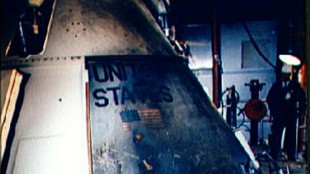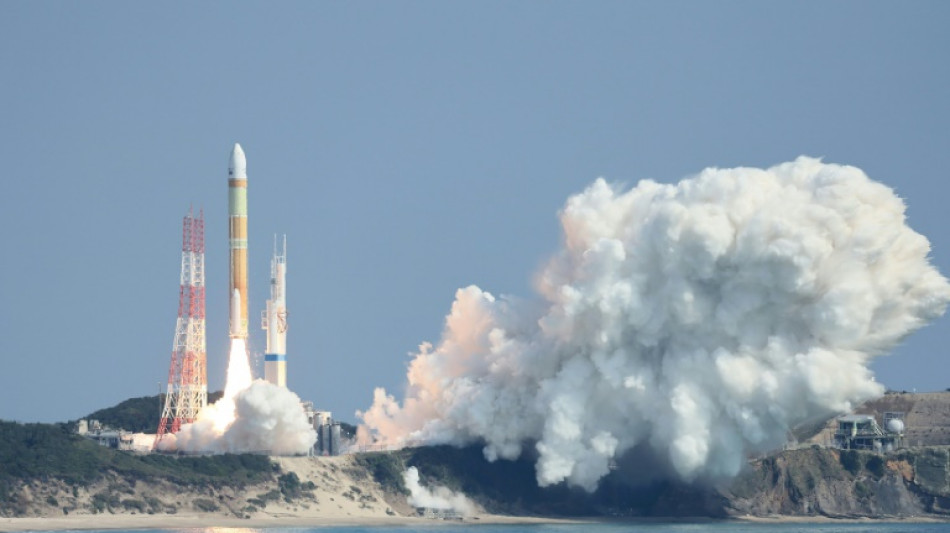
-
 Spanish singer Julio Iglesias prepares defence against abuse allegations: Hola! magazine
Spanish singer Julio Iglesias prepares defence against abuse allegations: Hola! magazine
-
Actor McConaughey seeks to patent image to protect from AI

-
 Musk's Grok barred from undressing images after global backlash
Musk's Grok barred from undressing images after global backlash
-
Hosts Morocco set up Senegal AFCON final showdown

-
 Trump says Iran killings stopped, Tehran says 'no plan for hanging'
Trump says Iran killings stopped, Tehran says 'no plan for hanging'
-
Chelsea paid for costly errors in Arsenal defeat, says Rosenior

-
 Morocco beat Nigeria on penalties to reach Africa Cup of Nations final
Morocco beat Nigeria on penalties to reach Africa Cup of Nations final
-
Golden Globes viewership shrinks again

-
 Astronauts leave ISS in first-ever medical evacuation
Astronauts leave ISS in first-ever medical evacuation
-
NASA reports record heat but omits reference to climate change

-
 Trump praises 'terrific' new Venezuela leader after call
Trump praises 'terrific' new Venezuela leader after call
-
Real Madrid crash out of Copa del Rey at Albacete on Arbeloa debut

-
 Trump says Iran killings stopped as US scales back Qatar base
Trump says Iran killings stopped as US scales back Qatar base
-
Arsenal beat Rosenior's Chelsea in League Cup semi first leg

-
 US stocks fall again as Iran worries lift oil prices
US stocks fall again as Iran worries lift oil prices
-
Inter extend Serie A lead to six points after Napoli slip

-
 Bayern beat Cologne to move 11 points clear in Bundesliga
Bayern beat Cologne to move 11 points clear in Bundesliga
-
Mane takes Senegal past Egypt into final of his last AFCON

-
 Trump says Greenland will 'work out' after Denmark fails to bridge gap
Trump says Greenland will 'work out' after Denmark fails to bridge gap
-
'Bridgerton' premieres in Paris promising 'Cinderella with a twist'

-
 California begins probe of Musk's Grok over sexualized AI images
California begins probe of Musk's Grok over sexualized AI images
-
Astronauts set to leave ISS in first-ever medical evacuation

-
 Napoli's stalemate with Parma opens door for Serie A leaders Inter
Napoli's stalemate with Parma opens door for Serie A leaders Inter
-
Syrian leader urges Kurdish integration as army sends troops east of Aleppo
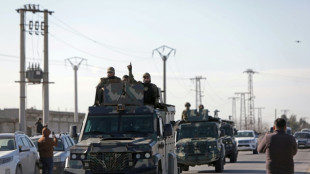
-
 Denmark says White House talks failed to alter US designs on Greenland
Denmark says White House talks failed to alter US designs on Greenland
-
Venezuela looking to 'new era' after Maduro ouster, says interim leader

-
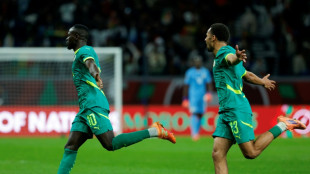 Mane takes dominant Senegal past Egypt into AFCON final
Mane takes dominant Senegal past Egypt into AFCON final
-
UK police admit 'mistakes' over Maccabi Tel Aviv fan ban

-
 Promoter says Joshua will return to ring when 'time is right' after horror crash
Promoter says Joshua will return to ring when 'time is right' after horror crash
-
California investigating Grok AI over lewd fake images

-
 Wales's Faletau set to miss bulk of Six Nations
Wales's Faletau set to miss bulk of Six Nations
-
Denmark, Greenland wrap up crunch White House talks
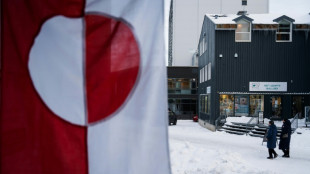
-
 England sweating on Fin Smith's fitness for Six Nations opener
England sweating on Fin Smith's fitness for Six Nations opener
-
NASA acknowledges record heat but avoids referencing climate change

-
 England rugby league coach Wane quits role
England rugby league coach Wane quits role
-
Oil prices extend gains on Iran worries

-
 European basketball pioneer Schrempf lauds 'global' NBA
European basketball pioneer Schrempf lauds 'global' NBA
-
Denmark, Greenland in crunch White House talks as Trump ups pressure
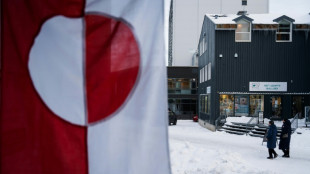
-
 Mitchell hits ton as New Zealand down India to level ODI series
Mitchell hits ton as New Zealand down India to level ODI series
-
Syrian army tells civilians to stay away from Kurdish positions east of Aleppo
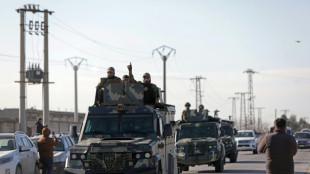
-
 Spurs sign England midfielder Gallagher from Atletico Madrid
Spurs sign England midfielder Gallagher from Atletico Madrid
-
Russian captain tried to avoid North Sea crash: court
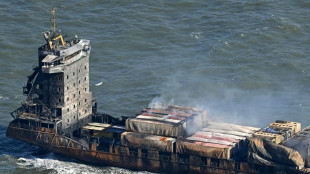
-
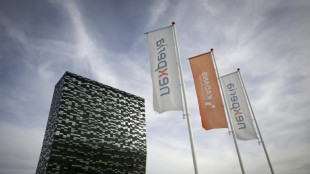 Battle over Chinese-owned chipmaker Nexperia rages in Dutch court
Battle over Chinese-owned chipmaker Nexperia rages in Dutch court
-
Transatlantic ties 'disintegrating': German vice chancellor

-
 Five problems facing Ukraine's new defence chief
Five problems facing Ukraine's new defence chief
-
Italian influencer Ferragni acquitted in Christmas cake fraud trial

-
 UK interior minister says 'lost confidence' in police chief over Maccabi fan ban
UK interior minister says 'lost confidence' in police chief over Maccabi fan ban
-
Ryanair hits out at 'stupid' Belgium over aviation taxes

-
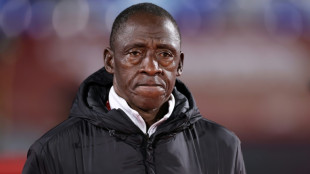 Burkina Faso sack coach Traore after AFCON exit
Burkina Faso sack coach Traore after AFCON exit
-
African manufacturers welcome US trade deal, call to finalise it
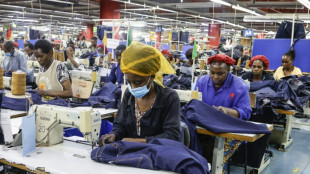

Japan's new H3 rocket fails again, forced to self-destruct
Japan's second attempt to launch its next-generation H3 rocket failed after liftoff on Tuesday, with the spacecraft forced to self-destruct after the command centre concluded the mission could not succeed.
The failure is a blow for Japan's space agency JAXA, which has billed the rocket as a flexible and cost-effective new flagship.
Its launch had already been delayed by several years, and then a first attempt last month failed when the solid rocket boosters did not ignite.
Tuesday's launch from the Tanegashima Space Center in southwestern Japan initially appeared to be a success, with the rocket lifting off.
The first-stage separation appeared to go as planned, but signs of trouble soon emerged.
"It seems that the velocity is coming down," announcers on the JAXA live feed said while the rocket was about 300 kilometres (185 miles) above ground.
The command centre then announced: "The second stage engine ignition has not been confirmed yet, we continue to confirm the situation."
The live feed was briefly halted, with a message reading, "We are currently checking the status. Please wait."
When it resumed, the command centre confirmed the bad news.
"Destruct command has been transmitted to H3 because there was no possibility of achieving the mission."
The rocket was not going to reach its planned trajectory without confirmation of the second stage engine, JAXA Vice President Yasuhiro Funo told a news conference.
Debris from the destroyed rocket is believed to have fallen in waters east of the Philippines, he said.
- 'Efforts to restore confidence' -
The cause of the failure will be investigated, said JAXA President Hiroshi Yamakawa.
"When a failure like this happens, it is important that we show how quickly we can move and show our findings with transparency," he said.
"My responsibility is to focus on discovering the cause and make efforts to restore confidence in our rockets.
The H3 rocket was developed for more frequent commercial launches as well as better cost efficiency and reliability and has been mooted as a possible competitor to Space X's Falcon 9.
"The H3 rocket is a very important rocket for not only the government of Japan but also for private sector businesses to access space," Yamakawa said.
JAXA has said it envisions the H3 becoming a workhorse that could be launched six times or so annually for around two decades.
There were no details on how long the investigation into the failure might take and whether or when JAXA could attempt a new launch.
Developed by Mitsubishi Heavy Industries, the H-3 is the successor to the H-IIA model, which debuted in 2001.
Tuesday's launch was carrying the ALOS-3 observation satellite, touted as having improved resolution and intended to help with disaster management and other monitoring.
The incident is not the only recent blow for JAXA.
In October 2022, the agency was forced to send a self-destruct order to its solid-fuel Epsilon rocket after take-off. It was carrying satellites into orbit to demonstrate new technologies.
That was Japan's first failed rocket launch since 2003.
The Epsilon rocket has been in service since 2013. It is smaller than the country's previous liquid-fuelled model, and a successor to the solid-fuel "M-5" rocket that was retired in 2006 due to its high cost.
E.Qaddoumi--SF-PST

